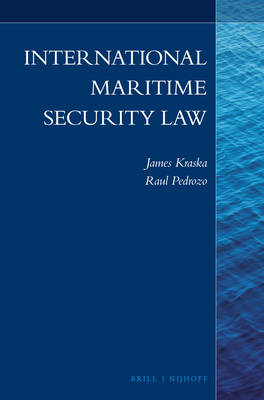
- Afhalen na 1 uur in een winkel met voorraad
- Gratis thuislevering in België vanaf € 30
- Ruim aanbod met 7 miljoen producten
- Afhalen na 1 uur in een winkel met voorraad
- Gratis thuislevering in België vanaf € 30
- Ruim aanbod met 7 miljoen producten
Zoeken
€ 144,45
+ 288 punten
Uitvoering
Omschrijving
International Maritime Security Law, by James Kraska and Raul Pedrozo, defines an emerging interdisciplinary field of law and policy comprised of norms, legal regimes, and rules to address today's hybrid threats to the global order of the oceans.
Specificaties
Betrokkenen
- Auteur(s):
- Uitgeverij:
Inhoud
- Aantal bladzijden:
- 966
- Taal:
- Engels
Eigenschappen
- Productcode (EAN):
- 9789004366992
- Verschijningsdatum:
- 15/03/2018
- Uitvoering:
- Paperback
- Formaat:
- Trade paperback (VS)
- Afmetingen:
- 155 mm x 234 mm
- Gewicht:
- 1338 g

Alleen bij Standaard Boekhandel
+ 288 punten op je klantenkaart van Standaard Boekhandel
Beoordelingen
We publiceren alleen reviews die voldoen aan de voorwaarden voor reviews. Bekijk onze voorwaarden voor reviews.








